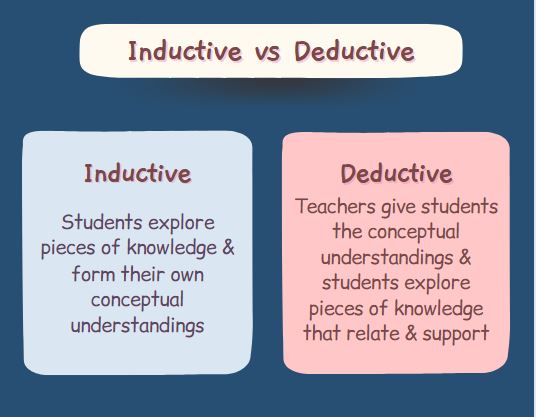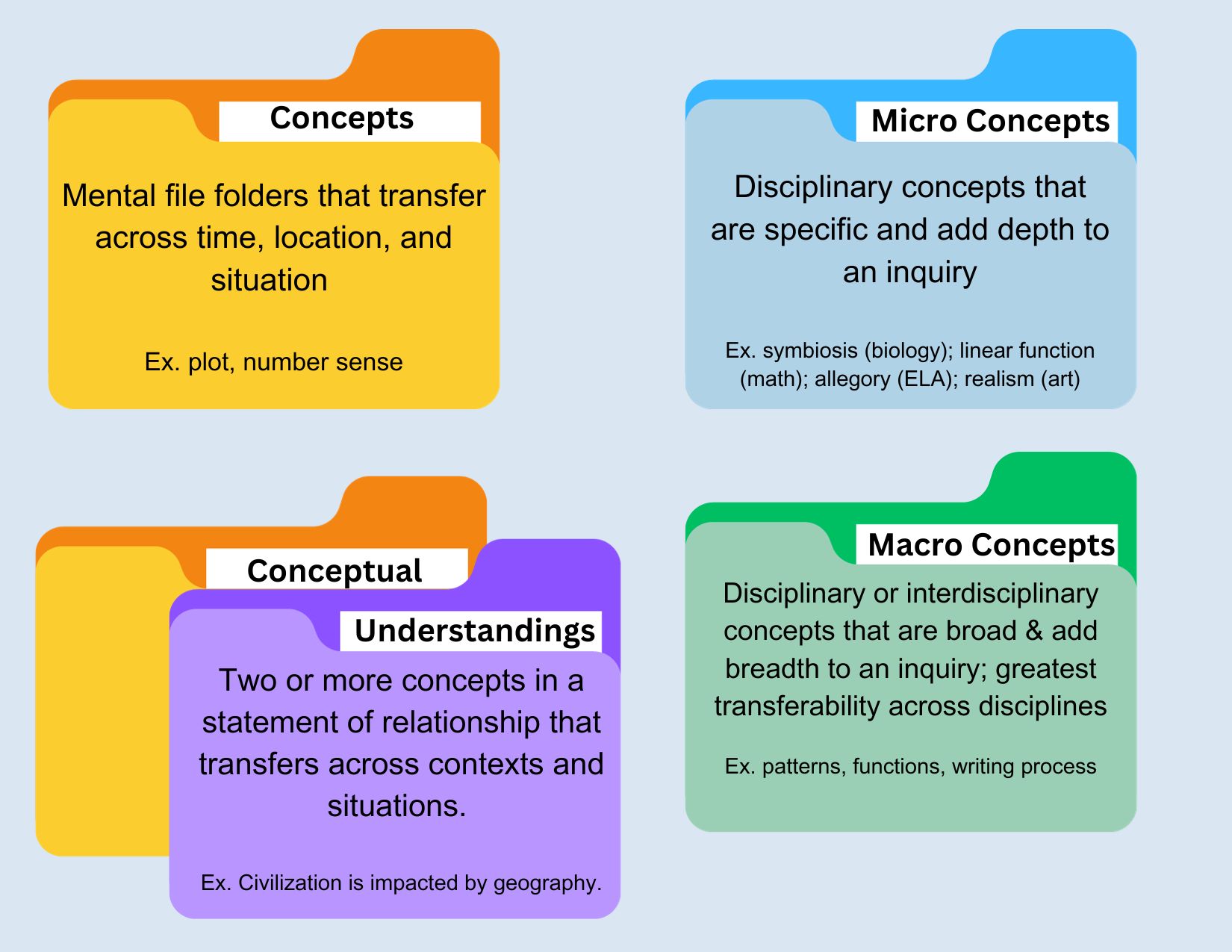In our module on conceptual understandings, we discuss that conceptual understandings, or generalizations, are statements that show a relationship between concepts. They help us design engaging, relevant units for our students by providing a bigger picture of the content. That can help students gain a deeper understanding of content and transfer their learning to new situations.
In this module, we will learn about how conceptual questioning can support an inquiry approach to using conceptual understandings with your students. While a deductive approach, in which a teacher provides the conceptual understandings, is probably more familiar to educators, an inductive, or inquiry approach, can provide opportunities for students to delve more deeply into the content. In this approach, teachers provide questions that guide students toward making their own conceptual understandings.

In this module, we will learn about how conceptual questioning can support an inquiry approach to using conceptual understandings with your students. While a deductive approach, in which a teacher provides the conceptual understandings, is probably more familiar to educators, an inductive, or inquiry approach, can provide opportunities for students to delve more deeply into the content. In this approach, teachers provide questions that guide students toward making their own conceptual understandings.
- Key Terms
- As you work through this module, here are a few key terms that might help you.

- What are conceptual questions? Why use them?
-
In this video, we go over what conceptual understandings are, how to write them, and when to use them. At the end, there are some reflection questions that might be helpful as you begin to write your own conceptual understandings.
Supporting Documents
- How do you use conceptual questions in your classroom?
-
Resources Mentioned in Video
- Additional Resources
-
DoE Learning Modules
Concept Foundations & Formation
Understanding Conceptual Understandings
Articles
Importance of Concept-Based Inquiry
Books
Transitioning to Concept-Based Curriculum
Concept-Based Inquiry in Action